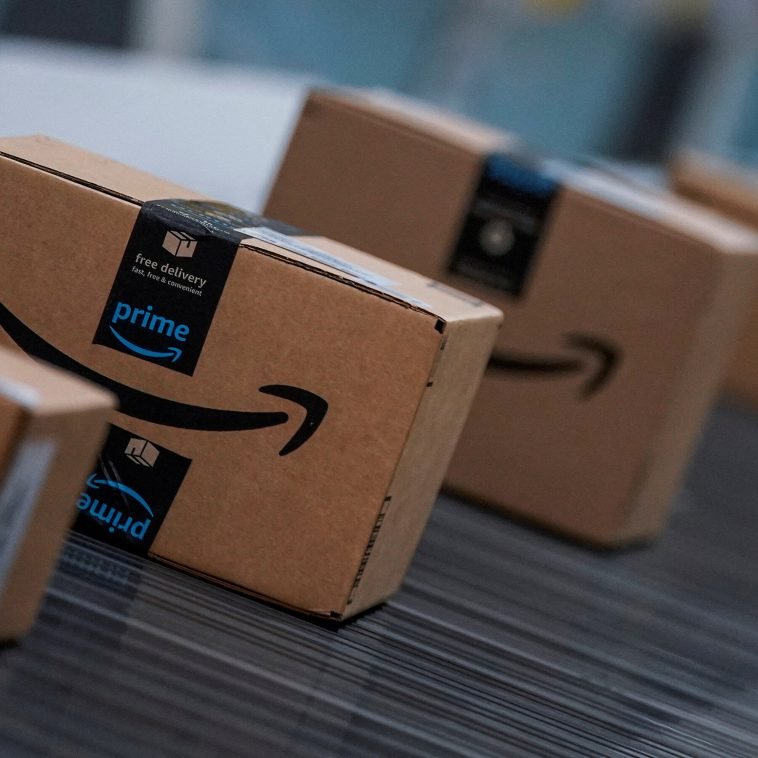Introduction.
Managing finances can be one of the trickiest parts of running an Amazon FBA (Fulfilled by Amazon) business.
When you’re focused on sourcing products, optimizing listings, and keeping customers happy, the bookkeeping side can easily feel like it’s getting left in the dust.
That’s where QuickBooks comes in. QuickBooks has earned its spot as a leading accounting tool for small to medium businesses, and it’s packed with features to help you manage the money side of Amazon FBA.
But figuring out how to use QuickBooks for Amazon FBA, specifically, can bring up a whole bunch of questions.
In this guide, I’ll break down how QuickBooks can help streamline your accounting for an Amazon FBA business, the steps to get set up, and how to make the most of its features.
Why Accounting Matters for Amazon FBA Sellers
When selling on Amazon, knowing where your money is coming from and going to isn’t just a “nice-to-have”—it’s essential.
There’s the money from sales, yes, but also fees, refunds, shipping costs, and possibly advertising costs.
Without a solid system to track it all, it’s easy to lose sight of profitability. For some sellers, it can be eye-opening to realize how much goes to fees alone. QuickBooks can help you track all these details, so you’re not just guessing about your finances.
QuickBooks is one of the best-known names in accounting software, making it a trusted choice for many Amazon sellers who want to keep track of their business finances with ease and confidence. It can save you time, give you a clearer financial picture, and make tax time less of a headache.
How Do I Use QuickBooks For Amazon FBA?
If you’re ready to get started, let’s look at the first few steps to make sure you have QuickBooks ready for your Amazon FBA needs.
1. Choosing the Right QuickBooks Version
- QuickBooks Online is a popular choice for FBA sellers, mainly because it’s cloud-based. This means you can access it from anywhere, and it integrates easily with other online tools.
- QuickBooks Desktop offers more robust reporting features, but it’s not as convenient for a seller who might want to check in from their phone or tablet.
2. Connecting Amazon and QuickBooks
- QuickBooks doesn’t directly connect to Amazon, but you can use a third-party app like A2X or Link My Books. These apps import your Amazon transaction data, like sales, refunds, and fees, directly into QuickBooks, simplifying the process.
- Once linked, you can categorize Amazon transactions and keep a clear record of sales, fees, and costs.
3. Setting Up Chart of Accounts for Amazon FBA
- QuickBooks organizes transactions using a Chart of Accounts, a list that helps you categorize your income and expenses. For Amazon FBA, this should include categories like Sales, Amazon Fees, Cost of Goods Sold, Advertising, and Shipping Costs.
- With a clear Chart of Accounts, QuickBooks can help you track your income, identify top expenses, and understand profitability.
Tracking Sales, Fees, and Expenses
One of the best things about QuickBooks is that it allows you to stay on top of every financial detail, so you always know where your money is going. Let’s break down a few key categories:
Sales
QuickBooks will let you track sales numbers and see how they fluctuate over time. With detailed reporting, you can look at sales per product or analyze how your sales compare month to month. This is useful for spotting seasonal trends or even identifying bestselling items.
Amazon Fees
Amazon charges various fees that can add up quickly. QuickBooks helps by categorizing all these fees, making it easy to see exactly how much you’re paying Amazon. If you’re looking to reduce costs, this is a great place to start.
Cost of Goods Sold (COGS)
Keeping track of your Cost of Goods Sold is crucial. This is the cost you incur to purchase products, and it affects your profit margins directly. QuickBooks allows you to track your inventory and calculate COGS, so you can ensure you’re always selling at a profitable price.
Shipping Costs and Other Expenses
Between fulfilment, returns, and regular business costs, your expenses can stack up. With QuickBooks, you can assign these expenses to categories so that, at the end of the month, you get a clear picture of where you’re spending.
Pros and Cons of Using QuickBooks for Amazon FBA
Pros:
- Time-Saver: QuickBooks can automate many bookkeeping tasks, like tracking sales and expenses, so you’re not stuck doing it manually.
- In-Depth Reporting: You can generate detailed reports, helping you to identify profit trends, seasonal changes, and high-expense areas.
- Simplifies Tax Season: At tax time, QuickBooks can generate reports you’ll need, making filing easier.
- Clear Cash Flow Insights: You get a straightforward look at what’s coming in versus what’s going out, so you’re not left wondering if your business is truly profitable.
Cons:
- Learning Curve: If you’re new to accounting, getting the hang of QuickBooks might take a little time.
- Additional Costs: QuickBooks itself requires a monthly subscription, and if you choose a third-party integration like A2X or Link My Books, that’s an extra cost.
- Not Amazon-Specific: QuickBooks isn’t tailored specifically to Amazon FBA, so there might be certain customizations you need to set up to make it fit perfectly.
FAQs
Q: Do I need to pay for QuickBooks and a third-party integration?
Yes, while QuickBooks handles the accounting, a tool like A2X or Link My Books will automate data imports from Amazon, saving you a ton of manual work.
Q: Can QuickBooks track inventory for Amazon FBA?
Yes, you can set up QuickBooks to track inventory and COGS, but keep in mind that it’s a bit more complex. There are other inventory-specific tools that might be more tailored if you have a large catalog.
Q: Will QuickBooks help with taxes?
Absolutely. QuickBooks tracks sales, expenses, and profits, which means you’ll have everything organized and ready for tax season.
Q: How often should I update my QuickBooks records?
Ideally, daily or weekly. Updating often helps you stay on top of your finances without being overwhelmed by a month’s worth of data at once.
Q: Is QuickBooks worth the cost for small Amazon sellers?
For most sellers, yes, especially if you’re handling a decent volume of transactions. Having detailed accounting makes it easier to understand where your business stands and catch any potential issues early on.
Conclusion
Using QuickBooks for Amazon FBA might feel like adding another task to your plate, but it can bring real value to your business.
With QuickBooks, you’ll have better insights into what’s working, what’s costing too much, and where you can improve.
It helps you avoid financial surprises, stay on top of expenses, and make informed decisions to keep growing your business.
If you’re managing the finances of an Amazon FBA business, QuickBooks is a great tool to consider. With a bit of setup and regular updates, it can become an essential part of how you run and grow your business.
What’s your biggest challenge with Amazon FBA accounting?





GIPHY App Key not set. Please check settings